Bernard Cribbins: National treasure beloved by generations of children
From starring in ‘Doctor Who’ to storytelling on ‘Jackanory’, Cribbins never failed to bring his warm nature to a role
An all-round entertainer for more than half a century, Bernard Cribbins first captivated national audiences with his talent for comedy timing when he acted in 1960s films such as The Mouse on the Moon (1963) and Crooks in Cloisters (1964), before landing his own television sketch show, Cribbins (1969-70).
The curly-haired, moustachioed actor’s light voice, which switched accents with ease, also saw him break into the Top 30 record charts in 1962 with his novelty songs “Right Said Fred”, “Hole in the Ground” and “Gossip Calypso”.
Then, with his role as the kindly station porter Perks in The Railway Children (1970), Lionel Jeffries’ lovingly made film version of Edith Nesbit’s novel, Cribbins cemented himself a place in the memories of generations of children and adults alike. Jeffries, who adapted the book, had originally intended to play Perks himself but then decided to concentrate on directing the film.
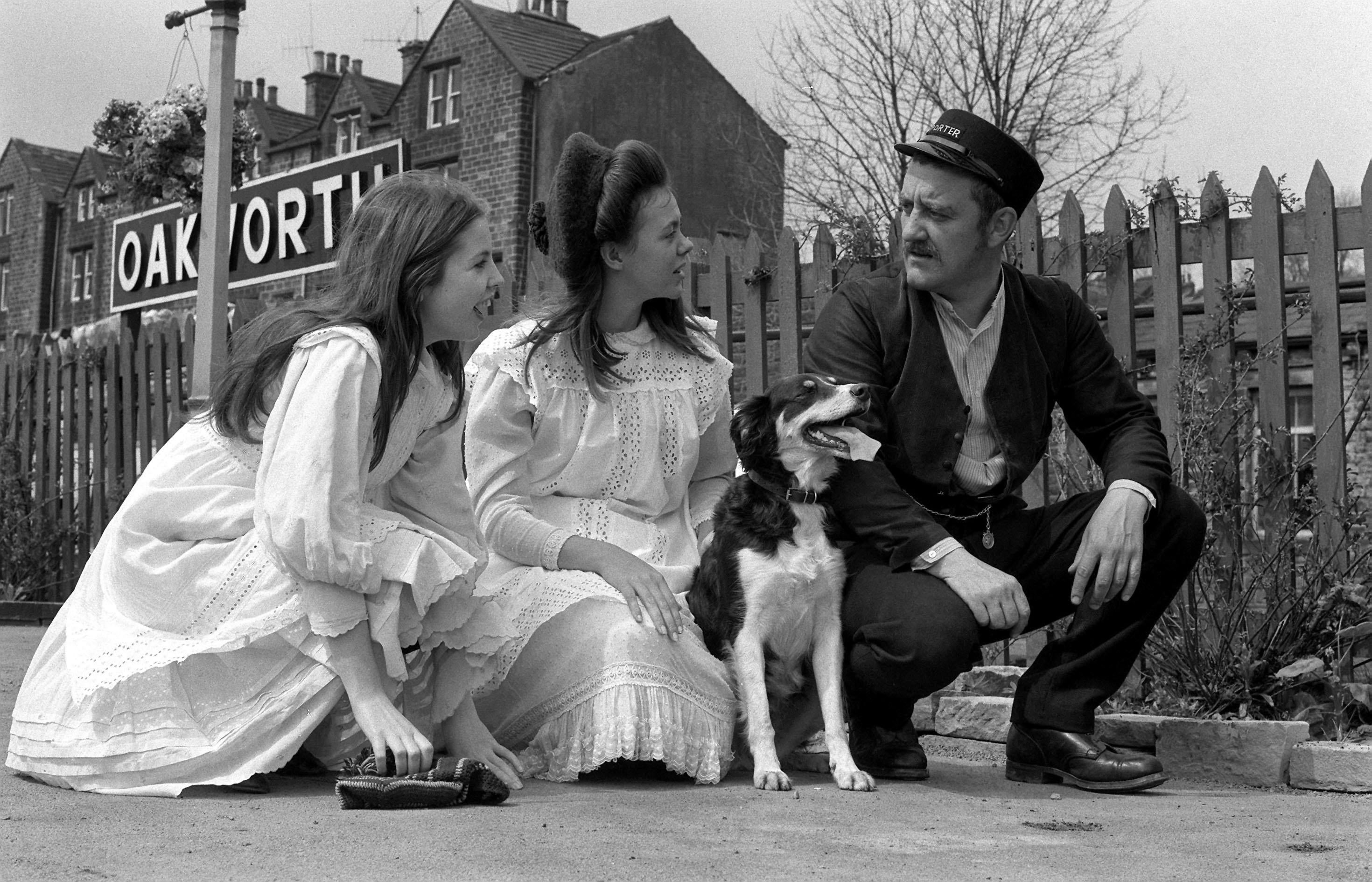
Just a few years later, Cribbins became familiar as the voices of Wimbledon Common’s furry characters in The Wombles television series (1973-75), also narrating the stories adapted from Elisabeth Beresford’s books, which gave him room for improvisation.
“Elisabeth used to write a very minimal script,” he recalled in a 2010 interview at the National Film Theatre. “It took five or six days to do a five-minute animation and I’d add little coughs and sneezes. I used to do at least five minutes of snoring for every episode, for Orinoco.”
Cribbins also narrated the audio recording of The Snowman (1983), based on the cherished children’s television film, as well as a concert at the Barbican, London, in the same year.
As a storyteller on Jackanory, he held the record for presenting 114 episodes, between 1966 and 1995. In 2009, he told The Independenton Sunday about a cab journey that confirmed his belief in the values extolled by that programme. “The driver asked me what I was doing,” he explained. “I told him I was going to do a little bit of filming for Roald Dahl because I used to do Jackanory and he said: ‘Yeah, Jackanory. I remember that. It made me want to learn to read.’
“That’s what kids’ TV is all about. It entertains, it stimulates, it educates and maybe, in some cases, it unlocks a bit of potential in a child, which they’ve all got, haven’t they? That sounds rather pompous, but it’s what I feel.”
In the same year, Cribbins won a special award at Bafta’s annual ceremony honouring children’s entertainment.
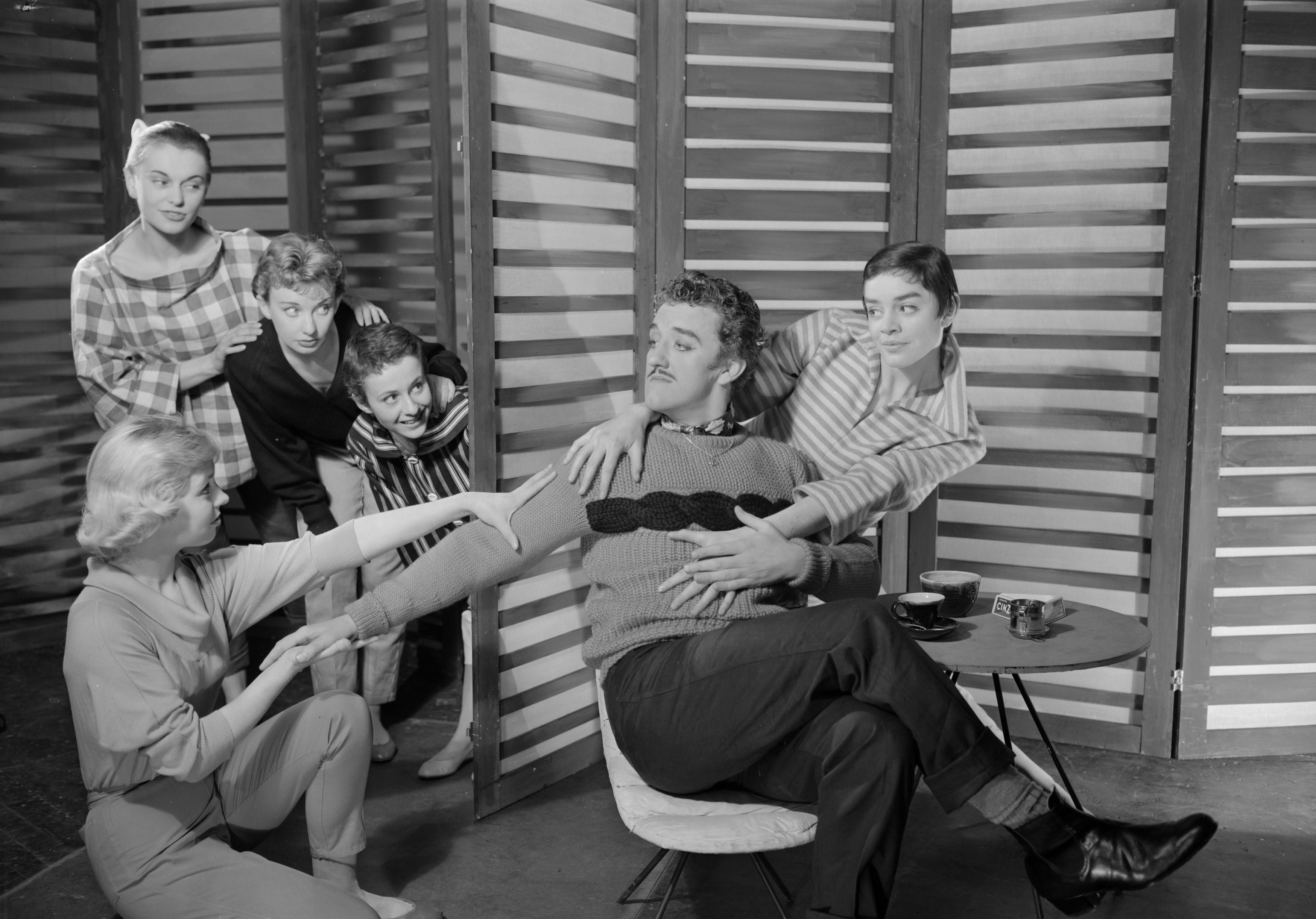
Having appeared as a comic police officer in the 1966 Doctor Who film spin-off Daleks’ Invasion Earth 2150 A.D., Cribbins more recently played Wilfred Mott (2007-10), grandfather of the Time Lord’s companion Donna Noble (Catherine Tate) and himself accompanying the doctor on one story in the revived television series. In 1974, Cribbins was interviewed as a prospective Doctor Who, but Tom Baker landed the role.
Born in Oldham, Lancashire, in 1928, the son of a plumber’s mate and a cotton and corduroy weaver, Cribbins made his stage debut, aged 13, in Lavender Ladies (1942) during a drama festival at the town’s Coliseum Theatre. He left St Anne’s School, Oldham, at the end of that year and, at the start of 1943, after turning 14, the theatre offered him a job as an assistant stage manager with the Oldham Repertory Company.
He switched to the Piccolo Players, Manchester, before doing his national service in the Parachute Regiment (1947-48), stationed amid the turmoil taking place in Palestine.
On returning to Britain, he joined the Queen’s Players, Hornchurch, and eventually made his London debut playing both Dromio twins in a musical version of The Comedy of Errors (Arts Theatre, 1956). This led to a run at the Vaudeville Theatre in Salad Days (1956) and a string of West End plays.
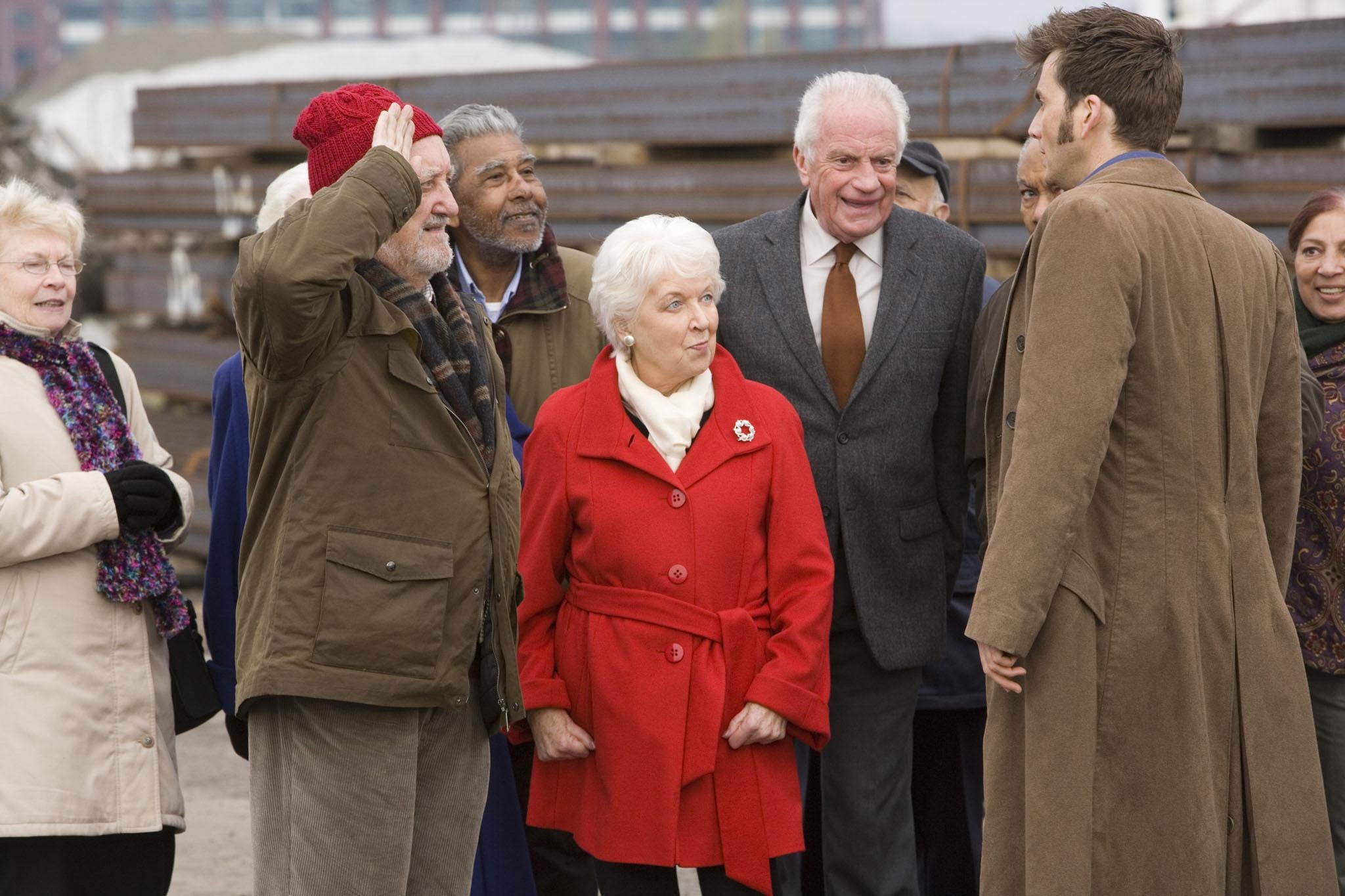
Singing “Folk Song”, a story of strange weather and double beds, in a country-yokel accent in the revue …And Another Thing (Fortune Theatre, 1960) led Cribbins to be signed up by Parlophone to record novelty singles. Although that first release failed to chart, he hit the Top 10 with “Hole in the Ground”, a satire on British class divisions, performing the roles of both a workman and bowler-hatted civil servant. “Right Said Fred”, produced by George Martin shortly before his first single with The Beatles, inspired the name of the group who stormed into the charts in 1991 with “I’m Too Sexy”.
Back on stage, Cribbins had leading roles in the comedies Not Now, Darling (Strand Theatre, 1968), There Goes the Bride (Criterion Theatre, 1974) and Run for Your Wife (Shaftesbury Theatre, 1983, Criterion Theatre, 1984). In musicals, he played Nathan Detroit in Guys and Dolls (National Theatre, 1984), Moonface Martin in Anything Goes (Prince Edward Theatre, 1989) and Alfred P Doolittle in My Fair Lady (Houston Opera House, 1991).
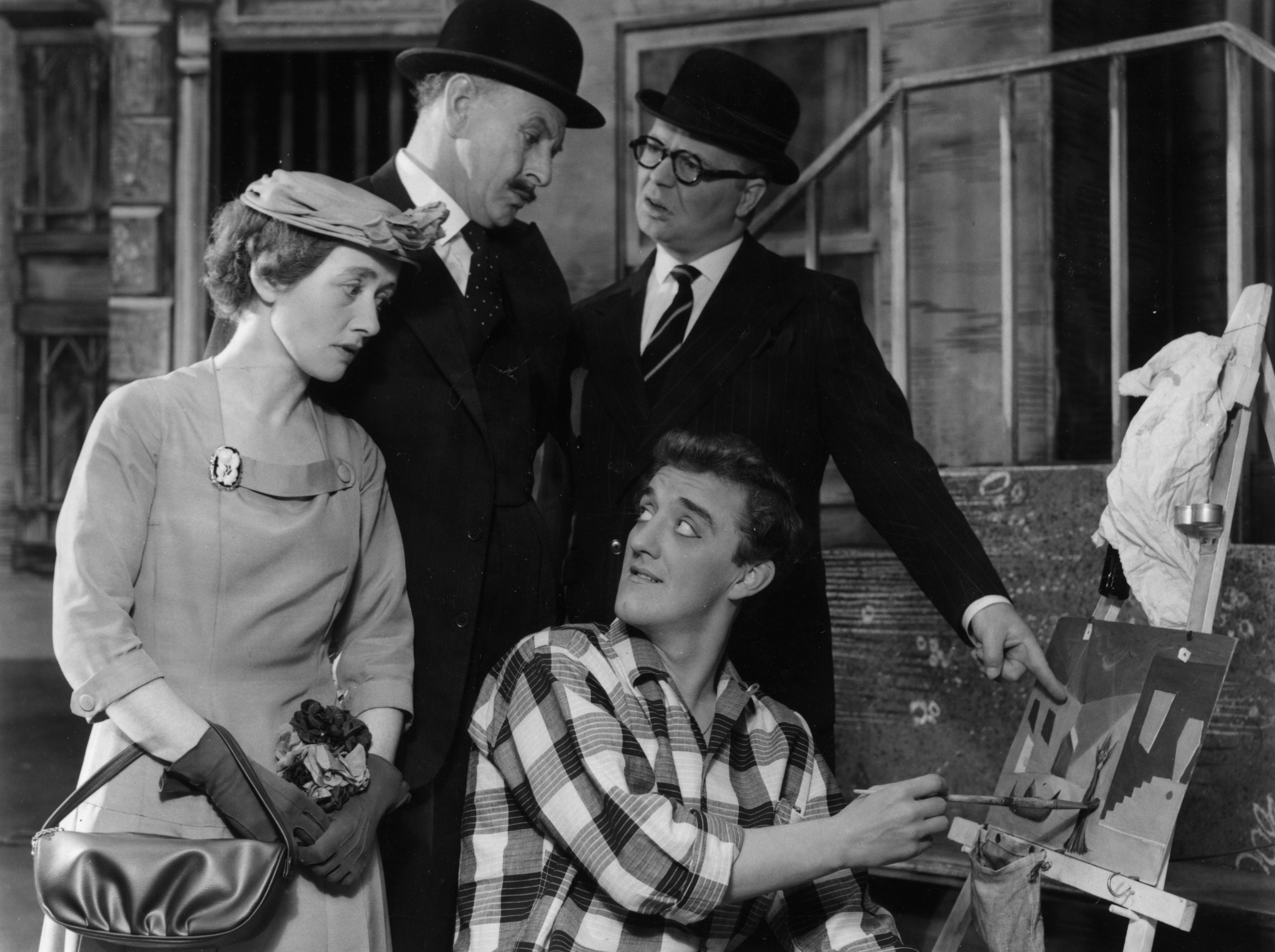
After Cribbins’s first West End appearances brought him to the attention of film producers, he made his big-screen debut in the warship drama Yangtse Incident (1957). He quickly worked his way up the cast list to play one of two crooked Spanish bullfight promoters, with Sid James, in the comedy Tommy the Toreador (1959), starring the pop singer Tommy Steele.
He was also cast in the comedies Carry On Jack (1963), in the central role of Midshipman Albert Poop-Decker, and Carry On Spying (1964), but denied a longer run by the director, Gerald Thomas, after losing his temper when blank ammunition from guns went off close to him. However, he returned for the final, disastrous production, Carry On Columbus (1992).
Cribbins recreated his man-hole-cover entrance from Carry On Spying when he played a taxi driver in the 1967 James Bond spoof Casino Royale – his third picture alongside Peter Sellers, following their roles as fellow crooks in Two-Way Stretch (1960) and The Wrong Arm of the Law (1963). In a different vein, he acted the pub landlord who sacks the wrongly suspected killer in Alfred Hitchcock’s thriller Frenzy (1972).
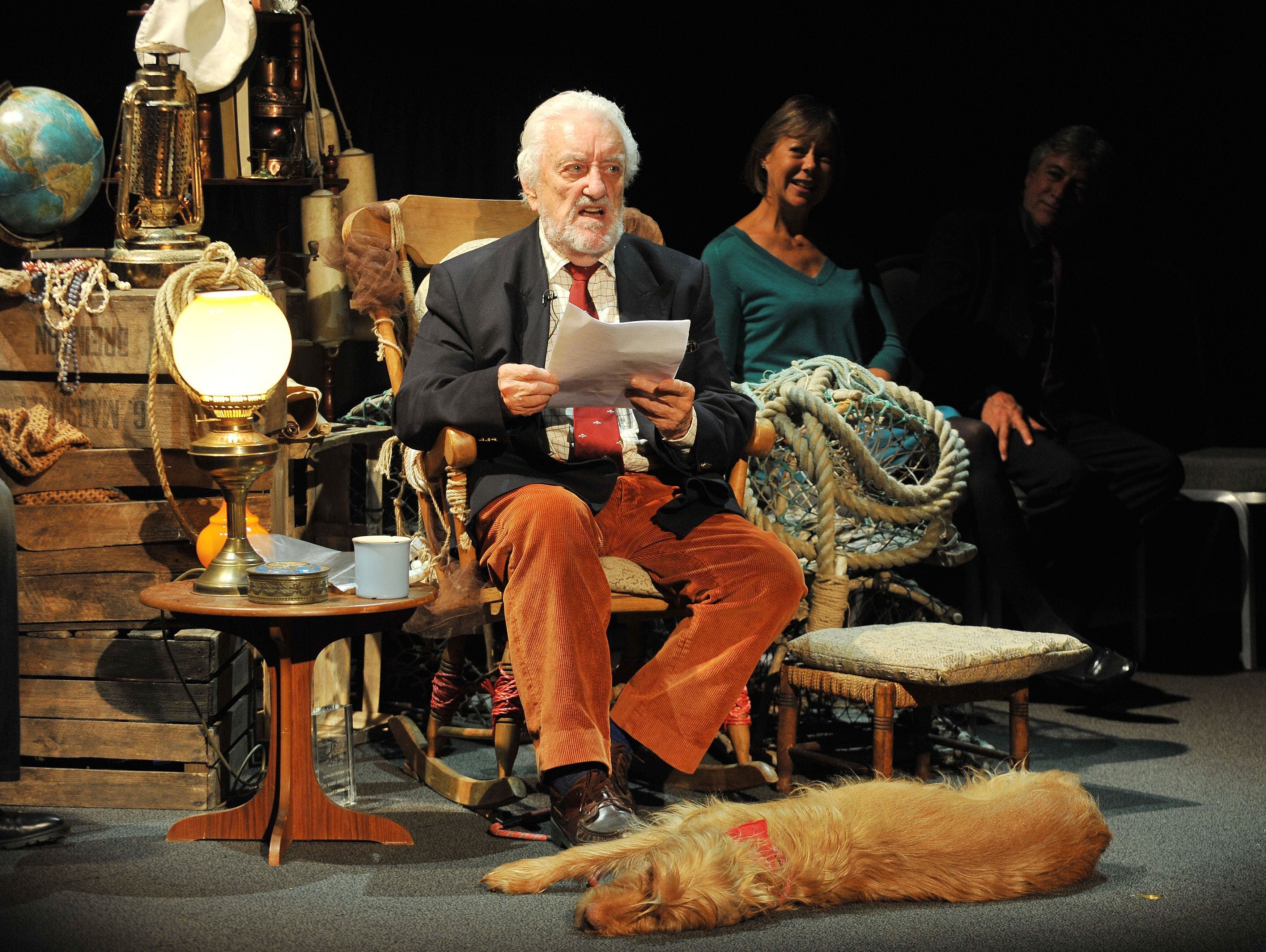
On television, Cribbins found more opportunities to take straight roles. He played Thomas Traddles in a 1956 BBC adaptation of David Copperfield and appeared in various plays, as well as popular drama series such as The Avengers (two roles: 1966, 1968).
Comedy and drama combined when he took the title role in The Canterville Ghost (1962) and played the scruffy village tinker in The Shillingbury Tales (1980-81) who was spun off into his own series, Cuffy (1983). Cribbins was also seen as the ineffectual sleuth of the title in the television film Dangerous Davies: The Last Detective (1981).
Perhaps the actor’s most enduring comedy role, because of the programme’s many repeats, was that of the spoon salesman mistaken for a hotel inspector in Fawlty Towers (1975). He later played the village’s nosy odd-job man Seth Raven in the sitcom Langley Bottom (1986) and Ron Archer, renovating a derelict pier, in High and Dry (1987).
There was also an enjoyable cameo role in Coronation Street as Wally Bannister (2003), the gardener passing himself off as a millionaire and bedding the gold-digging Tracy Barlow, and a short run in Last of the Summer Wine as the eccentric Gavin Hinchcliffe (2003), first seen skiing on the roof of a van.
Among other voices he brought to the screen were those of the cartoon bird Tufty in road safety commercials and British Telecom’s mascot Buzby. He also made audio recordings of Winnie-the-Pooh and other children’s books.
His autobiography, Bernard Who? 75 Years of Doing Just About Everything, was published in 2018. He was made an OBE in 2011. In 1955, Cribbins married Gillian McBarnet; she died in 2021.
Bernard Joseph Cribbins, actor and singer, born 29 December 1928, died 27 July 2022




Bookmark popover
Removed from bookmarks